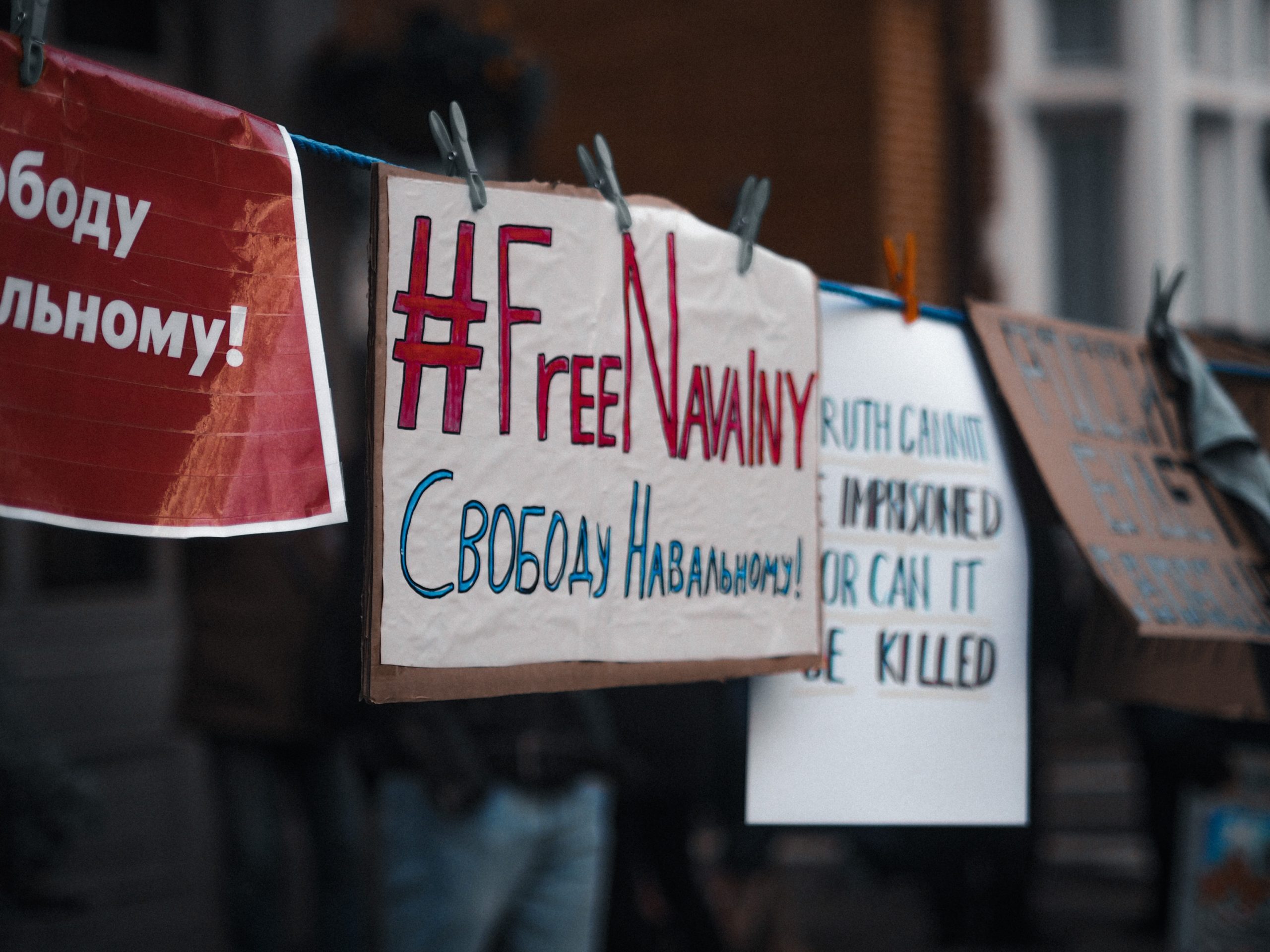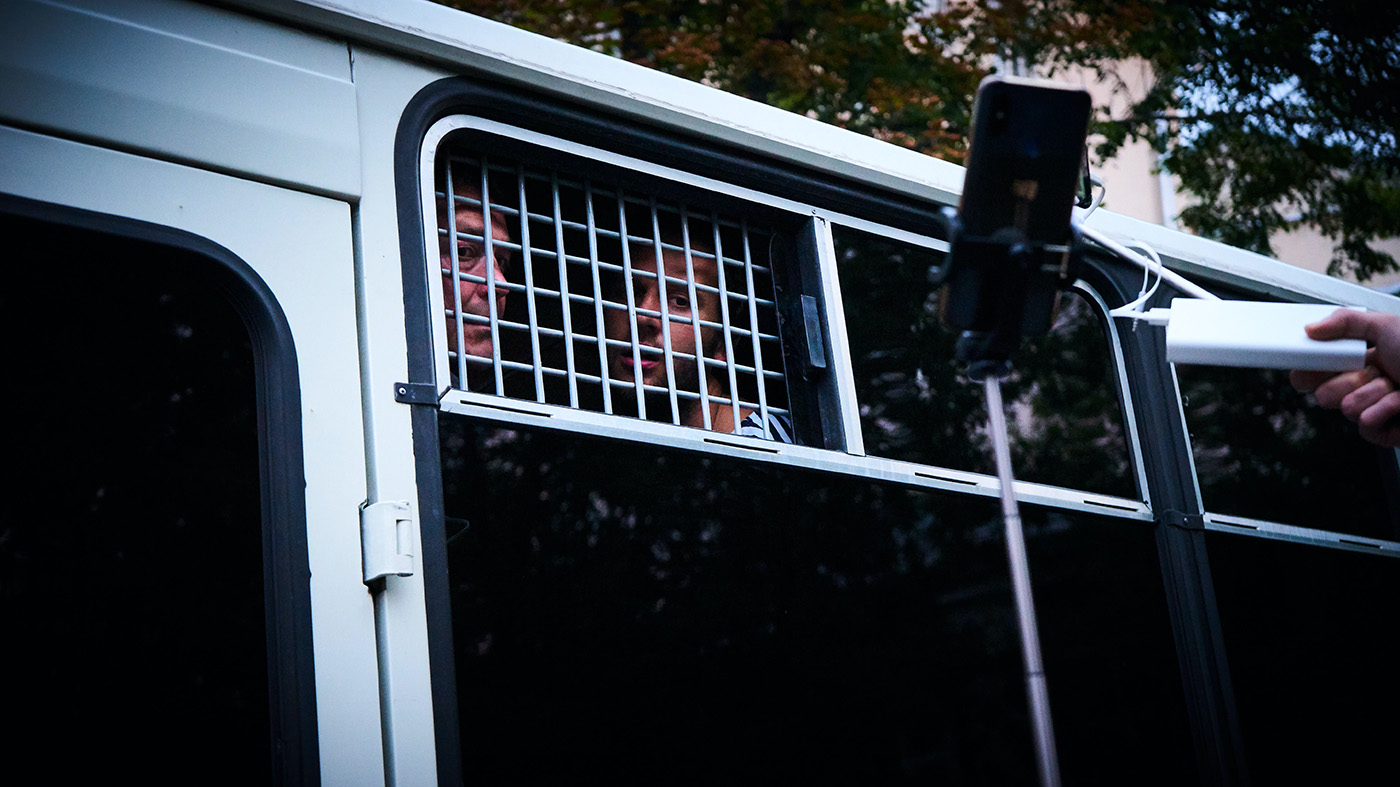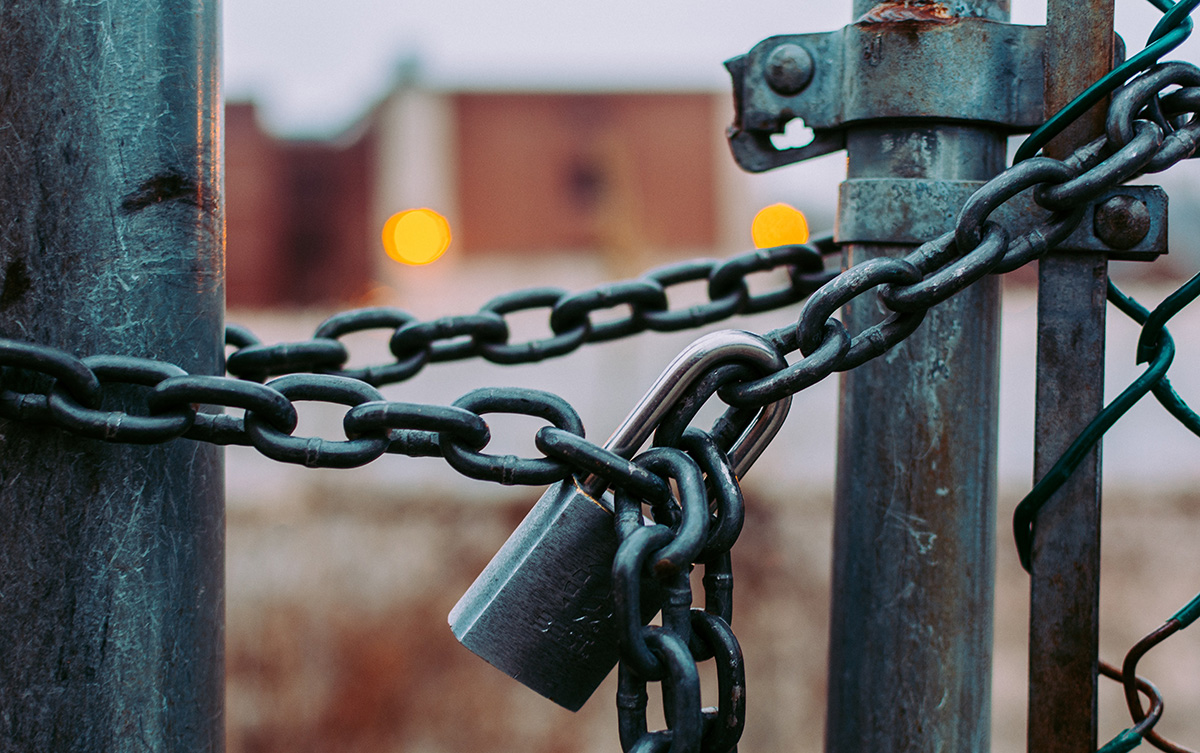Save Navalny, Stop Putin!
By Fedor Krasheninnikov April 02, 2021

On March 31, it was reported that Aleksei Navalny, who is currently imprisoned in a penal colony, began a hunger strike to protest prison officials’ abuse and the refusal to provide him with critical medical care. No one goes on a hunger strike unless they truly have nothing left to lose and no other means to fight for their rights.
The news should alarm anyone concerned about the fate of Navalny or, for that matter, Russia’s fate. If Putin’s government is prepared to go to such drastic lengths to silence Navalny, it is frightening to imagine what it is prepared to do in terms of its domestic and foreign policy.
We can’t lose sight of the fact that Aleksei Navalny’s life is now solely in the hands of one man — Vladimir Putin. The Russian President himself is Navalny’s judge, jailer and executioner. Anyone who claims otherwise has a poor grasp of how the Russian regime is structured, or is simply lying.
Without a direct order from Putin himself, or at least his approval, the FSB would not have spent years stalking members of the opposition, much less have made such a high-profile attempt on the life of Putin’s most prominent critic.
Putin himself has admitted that he gave personal authorization for Navalny to be flown to Germany for medical treatment. It is crystal clear that Putin was also behind Navalny’s outrageous arrest upon his inspirationally courageous return to Russia in January.
The actions of the Russian authorities, and that of Putin himself, in the aftermath of their failed attempt to kill Navalny, drive home the ugly reality that the Kremlin’s sole regret is that Navalny did not die on the spot after they poisoned him. Should we be surprised that those directly responsible for this crime and those who took part in the cover-up are now even more emboldened?
Despite the demands of the European Court of Human Rights for Navalny’s immediate release, he continues to be held in a penal colony in the city of Pokrov in Vladimir Oblast, where investigators, police officers, judges, and prison staff merely follow orders from the very top. Navalny is trapped in a penal colony with no medical assistance worthy of the term, where he is subjected to continuous abuse, not against the wishes of Putin or unbeknownst to him but rather because this is exactly what Putin wants.
No one is surprised to hear that no-holds-barred repression has been unleashed against the Russian opposition. But Navalny’s case is exceptional. There are not many Russians whose name is regularly raised in conversations with Putin by world leaders. And in Russia, there is certainly no other person whose plight brings out hundreds of thousands to the streets in a show of support – while risking their own freedom, health, and well-being. This is what sets Aleksei Navalny apart from so many Soviet-era dissidents, contemporary opposition figures and fearless investigative journalists, whose persecution and even murder never prompted sustained reverberations within Russia, let alone abroad.
While the Russian authorities persecute Navalny, they are also terrified of him. They are trying to destroy him, not as an individual or even as the leader of a handful of dissidents, but as the founder and leader of a powerful opposition movement that Putin has every reason to dread.
The authorities are clearly petrified. Otherwise, they would have no reason to continue intensifying their crackdown on Navalny’s associates and allies, or the thousands of ordinary citizens who took part in the protests they organized. Not a day goes by without someone being sentenced for taking part in January’s nationwide demonstrations of solidarity with Navalny. The closer we get to new protests, the more arrests and politically-motivated persecution we will see.
This is why it comes as no shock to learn that nearly all of Navalny’s inner circle in Russia find themselves under house arrest or in formal detention. Some whose actions offer no grounds for formal prosecution are nonetheless made targets of despicable attacks. The elderly parents of Leonid Volkov, who heads Navalny’s network headquarters, had their apartment searched. Just a few days ago, the 66-year-old father of the FBK Director Ivan Zhdanov was thrown into a pretrial detention center for far-fetched reasons. It is hard to say whether the Kremlin has any specific plan in mind vis-à-vis Ivan Zhdanov, or whether its actions are driven by pure revenge or Stalinesque terror. In either case, the Russian government’s actions evoke only the most profound alarm and sensation of disgust. It goes without saying that confinement of an elderly and not particularly healthy man to a Russian jail cell with four beds for five people is torture by any definition. Moreover, and this surely accounts for such action, the son will suffer anguish – psychological torture – in knowing that his father is suffering and he is powerless to do anything to help.
History has shown that regimes that terrorize their own citizens and critics are prone to start wars of aggression against other nations. The events of 2014 made it clear that Putin’s regime is already there. Since then, Russia’s domestic situation has become more dire, while the terror against critics of the regime has grown more brazen and cruel.
Right now, Navalny and his protest movement in Russia urgently need a demonstration of international solidarity, not only for the sake of noble ideals like freedom, democracy and justice, but to protect global security, as well. The international community has stood by passively for too long, allowing Putin to go too far, both domestically and abroad. Backing down even more or stopping at toothless statements of concern will only make things worse. Without meaningful external pressure, Putin will never stop his aggression. To him, each concession, each instance of eyes delicately averted, each failure to back words with deeds is a new victory, proof that he is untouchable, has chosen the right path, and may act with impunity.
The fight for Aleksei Navalny’s freedom, against political repression, and for free elections in Russia is much more than a moral imperative for honest people everywhere. It is the fundamental duty of all responsible democratic politicians.
Paying a heavy price with his own suffering and the unmistakable threat to his life, Aleksei Navalny is unmasking for all to witness the extent of the Putin regime’s depravity, cruelty, and crimes. Over the last 20 years, thousands of Russian citizens have suffered for their beliefs, and their numbers are growing. Do they need to number in the millions, with Russia’s aggression concurrently spilling out in all directions before the civilized world finally grasps the true scale of the problem and delivers an appropriate response?
Over the last several months, harassment of Russia’s political opposition has intensified, with legislative elections as a clear cause. Many people have erroneously believed that once the elections were over, the repressions would ease, if not entirely disappear.
By Fedor Krasheninnikov
October 11, 2021
 Article
Article
2021 saw widespread political repressions across Russia
By Anton Mikhalchuk
August 27, 2021
 Article
Article
On July 12, 2021, yet another amendment to the legislation on Undesirable NGOs entered into force in Russia. The changes mean that now anyone who works with an “undesirable” organization can be subject to administrative penalties
By Olga Gnezdilova
July 21, 2021

Over the last several months, harassment of Russia’s political opposition has intensified, with legislative elections as a clear cause. Many people have erroneously believed that once the elections were over, the repressions would ease, if not entirely disappear.
By Fedor Krasheninnikov
October 11, 2021
 Article
Article
2021 saw widespread political repressions across Russia
By Anton Mikhalchuk
August 27, 2021
 Article
Article
On July 12, 2021, yet another amendment to the legislation on Undesirable NGOs entered into force in Russia. The changes mean that now anyone who works with an “undesirable” organization can be subject to administrative penalties
By Olga Gnezdilova
July 21, 2021
